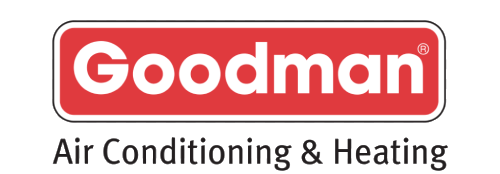When planning to replace your HVAC system, it’s essential to know that in most cases, you do indeed need a permit. Whether it’s upgrading your air conditioner, installing a new furnace, or altering your ductwork, a permit ensures that your installation complies with local safety and building codes.
What You’ll Learn:
- Requirements: Understand when and why a permit is necessary for replacing your HVAC.
- Safety and Compliance: Learn about the importance of ensuring your installation adheres to local regulations.
- Steps to Obtain a Permit: Get a straightforward guide on how to go about securing a permit before starting the work.
Ensuring you have the right documents before beginning any major HVAC work is not just about following the law—it also ensures that your system is safe and efficient.
Why You Need a Permit for HVAC Replacement
- Safety and Compliance: They ensure that HVAC installations comply with state and local building codes, which are designed to ensure safety and efficiency.
- Resale Value: Having the proper paperwork for HVAC work can affect the resale value of your home. Unpermitted work can lead to complications during the sale process.
- Insurance: Most home insurance policies require that any major installations, such as HVAC systems, be done with the necessary permits to maintain coverage.
When Is a Permit Required?
A permit is generally required for significant modifications to your home’s HVAC system. This includes:
- Installing a new air conditioner or furnace.
- Extensive ductwork changes.
- Any changes that alter the electrical or gas lines.
Projects like replacing a few parts of the air conditioning unit or minor repairs might not require a permit. However, it’s always best to consult with a licensed HVAC contractor or your local building department to confirm.
Understanding the HVAC Installation Process
The installation of a new HVAC involves several steps that must align with local building regulations to ensure the system operates safely and efficiently.
Steps to Get a Permit for HVAC Installation
- Consultation with a Licensed Contractor: Discuss your needs and ensure your contractor is licensed to pull permits in your area.
- Submission of Detailed Plans: Your contractor will submit detailed plans and specifications of the proposed work to the local building department for approval.
- Inspection Appointments: After the installation, a building inspector will check the work to ensure it complies with building codes and the specifications submitted.
What Happens During an HVAC Inspection?
During an HVAC inspection, an inspector will:
- Ensure that the installation aligns with the approved plans.
- Check that the AC system meets safety standards and building codes.
- Verify that the system functions correctly and efficiently.
Key Considerations for AC Replacement
Replacing your HVAC system can significantly improve your home’s comfort and air quality. Here are some factors to consider:
- Indoor Air Quality (IAQ): New systems can improve air quality by integrating more advanced filtration systems.
- Energy Efficiency: Modern systems are more energy-efficient and can lead to savings on utility bills.
How to Get a Permit for Replacement
Applying for a permit can sometimes seem overwhelming. Here’s a streamlined approach to simplify the process:
- Contact Your Local Building Department: They can provide specific requirements and necessary forms.
- Hire an HVAC Contractor: Choose a contractor experienced in dealing with local regulations.
Understanding Building Permit Requirements for Replacement in Las Vegas, Nevada
When it comes to replacing your HVAC system in Las Vegas, understanding the specific local requirements is crucial for homeowners to ensure compliance and avoid penalties. Las Vegas, being part of Nevada, adheres to particular building codes that affect how they are installed and replaced.
Why Las Vegas Homeowners Need a Building Permit for HVAC Replacement
- Local Regulations: In Las Vegas, a building permit is required for replacing air conditioning systems to ensure that the new installation complies with updated energy efficiency and safety standards.
- Inspection Requirements: Post-installation, a city building inspector verifies that the works align with the Nevada building codes. This step is crucial to validate the safety and efficiency of the new system.
- Legal and Financial Risks: Operating without a permit can lead to expensive fees and legal complications, especially if the unpermitted work is discovered during home inspections when you decide to sell your property.
Steps to Obtain a Permit in Las Vegas
- Contact the Local Municipality: Reach out to your local building department to understand the specific requirements for HVAC replacements in Las Vegas. You can find detailed guidelines and necessary forms on Nevada Housing Division’s permits page.
- Work with Licensed Professionals: Ensure that your HVAC contractor is licensed in Nevada, as unlicensed work may not only lead to penalties but also pose safety risks.
- Documentation and Compliance: Your contractor should pull the necessary permits and ensure that all work performed meets local and state standards. This documentation will be crucial if you ever decide to sell your home.
Peace of Mind with Professional HVAC Services
Hiring a professional HVAC company in Las Vegas not only ensures that your new system is installed properly but also guarantees peace of mind knowing that all local codes and permit requirements are met. Licensed technicians have the experience and knowledge to navigate the permit process and ensure that your installation is up to code.
Contact Us for Professional HVAC Services
Planning an HVAC system replacement and need guidance on navigating the permit process? Visit us at Bob’s Repair for expert assistance. Our licensed professionals are dedicated to helping you select the ideal system that meets your needs, managing all permitting requirements, and ensuring a smooth, code-compliant installation. Connect with our team today to ensure your HVAC project is handled with expertise and care.










